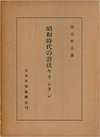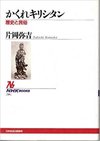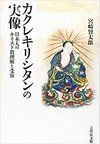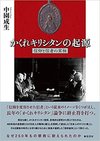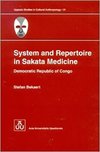深めて!南山GLS 教員紹介
MUNSI ROGER VANZILA
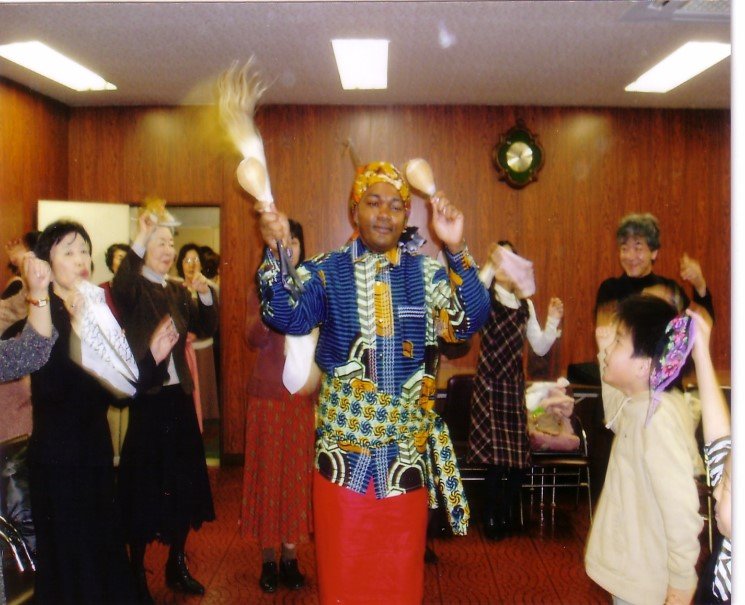
The photo illustrates a Congolese dance I performed at the Catholic Hall of Kichijoji Church in 2008 during a party organized for my graduation from Kanagawa University.
| 研究者詳細 |
|---|
専門分野
Cultural anthropology, Folklore Studies, Religious Studiesこの分野を選んだ理由
I initially developed a keen interest in anthropology, with an appreciation for existing cultural differences, through my social interactions and collaborative research with the late Professor Herman Hochegger, an Austrian anthropologist who worked for 40 years in my hometown of Bandundu, in the hinterland of the Democratic Republic of Congo. Thereafter, I chose to study anthropology at university because of the realization that the discipline can provide me with a strong liberal arts degree. Note that the purpose of a liberal arts education is to teach students how to think critically: (1) manage unfamiliar information and experiences, (2) solve problems, (3) learn how to acquire new skills quickly and effectively, (4) express ideas verbally; and (5) write clearly and effectively in multiple genres. As such, anthropology majors have a wide variety of career options available to them. Becoming an anthropologist is only one option, and not every student chooses it. In fact, the more I study anthropology the more I realize that anthropology is the study of all aspects of humanity at all times. With roots in the physical sciences, social sciences, and humanities, anthropology is a quintessential liberal arts discipline. Specifically, is the study of people—their origins, adaptations and ecology, distribution, customs, languages, and social and religious beliefs. Anthropological studies therefore range from human genetics to personality and society, the prehistoric past to the present, preliterate tribes to modern industrial urbanites, and from the customs of ancient civilizations to the beliefs of folk peoples today. It is recognized that anthropologists explore human evolution, reconstruct societies and civilizations of the past, and analyze the cultures and languages of modern peoples. In this respect, I finally understood that my skills acquired in studying anthropology can be carried into many careers. They are also skills that can help me live a stimulating and satisfying life.
研究に欠かせないアイテムとその理由
My primary research focuses on the religious practices and socio-cultural aspects of the present-day remnants of Kakure Kirishitan communities. When I analyze data gleaned from these faith-based communities, I often used Stephen Turnbull’s book as a basis for my studies, as well as an elaborated English book and the Japanese seminal books by Tagita Koya, Kataoka Yakichi, Miyazaki Kentaro, and Nakazono Shigeo.My secondary research deals with the Sakata people in the Democratic Republic of the Congo. I specifically study their socio-political and religious organizational patterns. Here I primarily refer to Stefan Bekaert’s book, entitled, “System and Repertoire in Sakata Medicine: The Democratic Republic of Congo.
趣味
My favorite hobby is reading, writing, dancing, singing, and learning languages. Reading books and writing essays is one of my great hobbies. Reading allows me to get knowledge about people, places, and other activities. Reading novels and story books give me enough knowledge about the things being talked about by the books. This helps in scaling up my imagination skills. Sometimes I develop my own visual images of the situation while reading the book. Reading also to increase my knowledge of vocabulary and grammar and brings me fluency in my articulation of the language. Writing essays is one of the best hobbies that keeps me happy all the time (especially early morning and late evening). I like writing essays to share my viewpoints and researching evidence with an academic audience and the general populace. Dancing is such a great form of art and many people from Africa love to dance as it flows in their blood and gives them happiness. But it must be said that dancing allows them to communicate through their body’s expressions or gestures, both culturally and socially. Many Africans (irrespective of their age) have the hobby of dancing because their bodies naturally respond to the sound of music. They really love to synchronize their movement with the beats and the music.
好きな食べ物
I like eating fish and meat (especially fried fishサバ and meat牛肉), tomato sauce. I also like eating vegetable, chicken hayashiチキンハヤシ, and roast tonkatsuローストトンカツ.
座右の銘
“Mens sana in corpore sano” is a Latin phrase, usually translated as “a healthy mind in a healthy body.” The phrase is widely used in sporting and educational contexts to express the theory that physical exercise is an important or essential part of one’s mental and psychological well-being. The phrase comes from Satire X of the Roman poet Juvenal (10.356). It is the first in a list of what is desirable in life: “orandum est ut sit mens sana in corpore sano.” [Literally: “You should pray for a healthy mind in a healthy body”.]
小さい頃の夢
When I was young my dream was to become an engineer in construction. I recall that I was building many small houses using either bricks or wood. I count paint all those small houses and introduced them to my friends. I also attracted the attention of many people in our district as I was curious about the way constructors were doing their work in summer. As a high school student, I was very good in mathematics and physics. At that time, I thought that I could major in construction at the university and gradually make my dream become a reality. Unfortunately, it turned out that I later developed a desire to become a Roman Catholic Priest and hence majored in literature with a specialization in Latin-Philosophy. This later brought me to develop a keen interest in anthropology. Looking back, I can realize the extent to which each person has his/her own destiny. Each person’s major therefore comes from time.
行ってみたい国・場所
I would like to visit Okinawa because of my reading of Yanagita Kunio’s essays. My short stay in Okinawa may enhance my understanding of why Yanagita Kunio selected it as a field site. Likely this is because he saw it as an area rich with ancient Japanese lifestyles, which had imported a few customs from China. As a Roman Catholic Priest, I also want to visit Jerusalem and other parts of present-day Israel because of their connection with the Biblical stories (Old and New testaments).
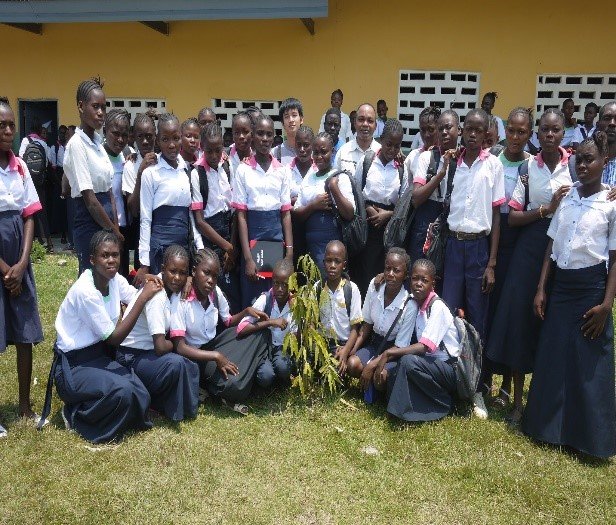
KAI SHIONOYA, Prof. MUNSI, and High School students at Heiwa School (5 Sept., 2019).
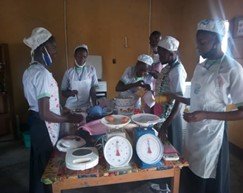
Heiwa School Students in the Nutrition Training Room.

